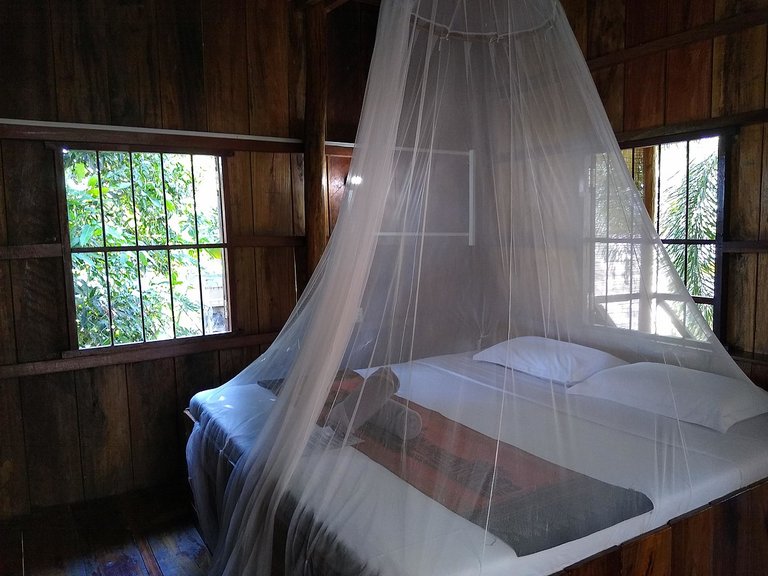For what has become a quarterly thing now, I came down with malaria just a couple of days ago. This would be the third bout of malaria this year alone. When the World Health Organization announced the breakthrough that is the mosquito net, I personally thought it was about time a goodbye is said to malaria.
For what it's worth, once mosquito bites become a thing of the past, the transmission of malaria parasites through mosquito bites becomes difficult. In fact, malaria disease would be as good as being eradicated because transmission through mosquito bites is about the only form of transmission.
However, despite all the initial hype about mosquito nets and their potential to end malaria, the disease remains at large in areas where it is endemic. This is even based on the ground that mosquito nets became freely available for everyone at some point - and still are in some places.
Mosquito nets being available exclusively at a cost could have been an argument against their potential to end malaria. A visit to the outpatient departments of many Nigerian hospitals will tell you that malaria remains the number one disease that threatens the health of Nigerians.
I am certain this is what is obtainable in other malaria-endemic countries of the world. So, what else are we getting wrong with mosquito nets that seem to not be producing the much-needed result of significantly reducing or even eradicating malaria?
The mosquito net
The mosquito net is a clothing material of variable mesh sizes. The materials could be nylon, polyethylene, or even cotton. Many people think that the appendage of the words 'mosquito nets' is only applicable to those nets that are hung over beds or used to delimit space outdoor.
Mosquito nets actually include some that are fixed to windows, doors, or even as part of the natural home aesthetics. Also, mosquito nets are not designed exclusively to screen mosquitoes.
Depending on the mesh size, some mosquito nets also serve to screen small insects that can constitute a nuisance or be of health concern to humans or their pets/livestock. While some are permanently stationed, some nets can be hung and folded as when due.
Some mosquito nets do not just screen mosquitoes or other small insects away from humans. They are treated with insecticides and as such, kill any mosquito or insect that comes close or gets in contact with them.

Issues with mosquito nets
If mosquito nets do indeed screen mosquitoes away from humans, we should have said goodbye to malaria a long while ago. While mosquito nets are able to perform the said functions to an extent, there are a few issues that have been mitigating the eradication of malaria through the use of mosquito nets.
Reduced air circulation
Most apartments in this part of the world where mosquitos thrive have mosquito nets attached to their windows either permanently or in a slide-able way. The same cannot be said for doors though. Even if there are mosquito nets affixed to doors, mosquitoes are still able to gain entrance whenever the doors are opened for human access.
This means that apart from the mosquito nets affixed to windows or doors, every household is still required to sleep under mosquito nets. However, most households do not sleep under mosquito nets, and it is not because they do not have one. It is simply because these nets tend to reduce air circulation.
Apart from the fact that reduced ventilation can be anecdotally deduced by anyone that has had reasons to sleep under mosquito nets, scientific investigations have revealed that mosquito nets reduce ventilation by up to 75%. Variations exist depending on the mesh size. The bigger the mesh, the more the reduction in ventilation.
Thus, those of us in the tropics with a relatively high annual average temperature and where mosquitoes thrive, are torn between enduring the reduced air circulation associated with the use of mosquito nets or the nuisance of mosquitoes and the consequences of their bites.
Most of the time, especially when an artificial ventilator is lacking, many prefer to expose themselves to mosquitoes than sleep under mosquito nets. This particular problem of reduced air circulation has been reported to be the major factor working against the use of mosquito nets as a means to reduce or eradicate malaria.
Allergic reaction to insecticides
This is applicable to insecticide-treated mosquito nets only. In actual fact, one will have to dig deep before getting mosquito nets that are not treated with insecticides nowadays.
Despite the fact that it is always instructable to spread new insecticide-treated nets in the air for up to 48 hours before sleeping under them, I have seen many people who developed allergic reactions to these nets.
Thus, many people stay as far away from these nets as much as possible without even finding out if they are allergic to the chemicals or otherwise. They simply do so from a third-party experience.
Mosquito nets-defying mosquito bites
Yea. Sleeping under mosquito nets does not give a 100% guarantee that one will not be bitten by mosquitoes. If you are a clumsy sleeper and unfortunate enough for your body to be in contact with the mosquito net, mosquitoes can still get access to your body by using their proboscis through the mesh.
Summary
The advent of mosquito nets has created the possibility of eradicating malaria - or so we initially thought. However, there have been a couple of problems that make this aim insurmountable.
Mosquito nets reduce the ventilation that gets into the space they are screening, some people develop allergic reactions to nets that are treated with insecticides, and one can still get bitten by mosquitoes despite sleeping under mosquito nets.
In conclusion, in order to effectively get rid of malaria, a disease that has claimed more lives than COVID ever will, we need to look beyond mosquito nets. This is because the problems associated with the usage of mosquito nets will simply not go away.
What do you think?
Thank you all for reading.
Resources and further reading
Posted with STEMGeeks



